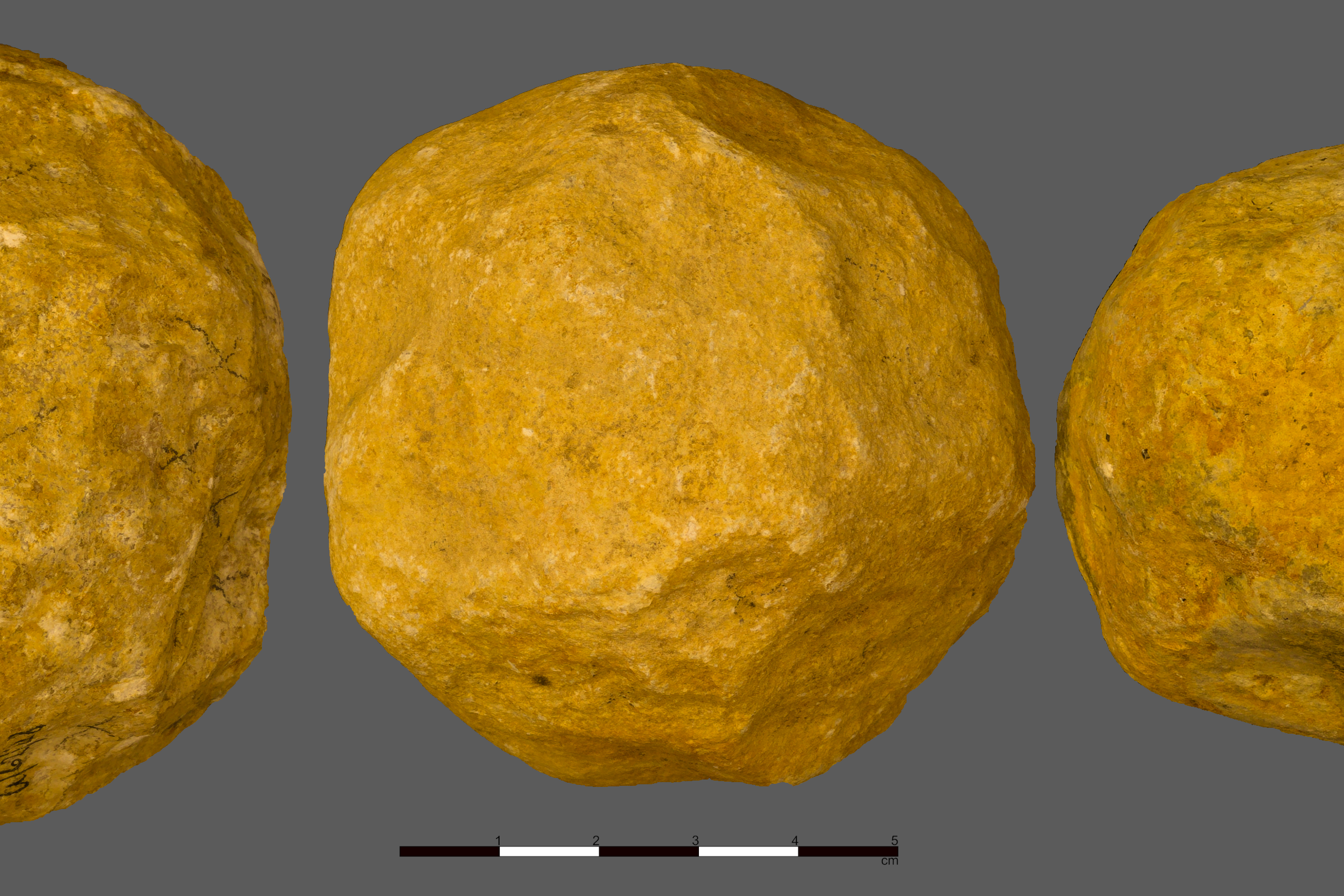Early humans ‘were intentionally crafting stone balls 1.4 million years ago’
New research suggests they appreciated geometry and symmetry.

Your support helps us to tell the story
From reproductive rights to climate change to Big Tech, The Independent is on the ground when the story is developing. Whether it's investigating the financials of Elon Musk's pro-Trump PAC or producing our latest documentary, 'The A Word', which shines a light on the American women fighting for reproductive rights, we know how important it is to parse out the facts from the messaging.
At such a critical moment in US history, we need reporters on the ground. Your donation allows us to keep sending journalists to speak to both sides of the story.
The Independent is trusted by Americans across the entire political spectrum. And unlike many other quality news outlets, we choose not to lock Americans out of our reporting and analysis with paywalls. We believe quality journalism should be available to everyone, paid for by those who can afford it.
Your support makes all the difference.Early humans appreciated geometry and symmetry and were intentionally crafting spherical shapes around 1.4 million years ago, according to an analysis of ancient stone balls.
Experts from The Hebrew University of Jerusalem in Israel scrutinised 150 limestone balls – or spheroids – unearthed in ‘Ubeidiya, an archaeological site in the Jordan Rift Valley in Israel.
The team reconstructed the steps required to create these spheroids and found the patterns on the artefacts were crafted as part of “a preconceived goal to make a sphere”.
The researchers said their findings, published in the journal Royal Society Open Science, challenge the view that the spheroids were created as by-products of other tasks.
Antoine Muller, a researcher at The Hebrew University of Jerusalem’s The Institute of Archaeology, said: “The main significance of the findings is that these spheroids from ‘Ubeidiya appear to be intentionally made, with the goal of achieving a sphere.
“This suggests an appreciation of geometry and symmetry by hominins 1.4 million years ago.”
Ancient spheroids were part of the daily lives of early humans nearly two million years but what exactly they were used for has remained a mystery.
To understand more about these enigmatic objects, the researchers used 3D analysis methods and other cutting edge technologies to retrace how they were created, based on the markings and the geometry of the spheroids.
The main significance of the findings is that these spheroids from 'Ubeidiya appear to be intentionally made, with the goal of achieving a sphere
The team believe that these objects may have been intentionally “knapped” – a technique used to shape stone by striking it.
The researchers said the limestone pieces were “reduced” to create spherical shapes.
This transformation towards an ideal sphere required exceptional knapping skills and a clear preconceived goal, the team added.
However, the purpose of the spheroids still remain unclear.
Mr Muller said: “We still can’t be confident about what they were used for.
“A lot of work needs to be done to narrow down their functionality.”